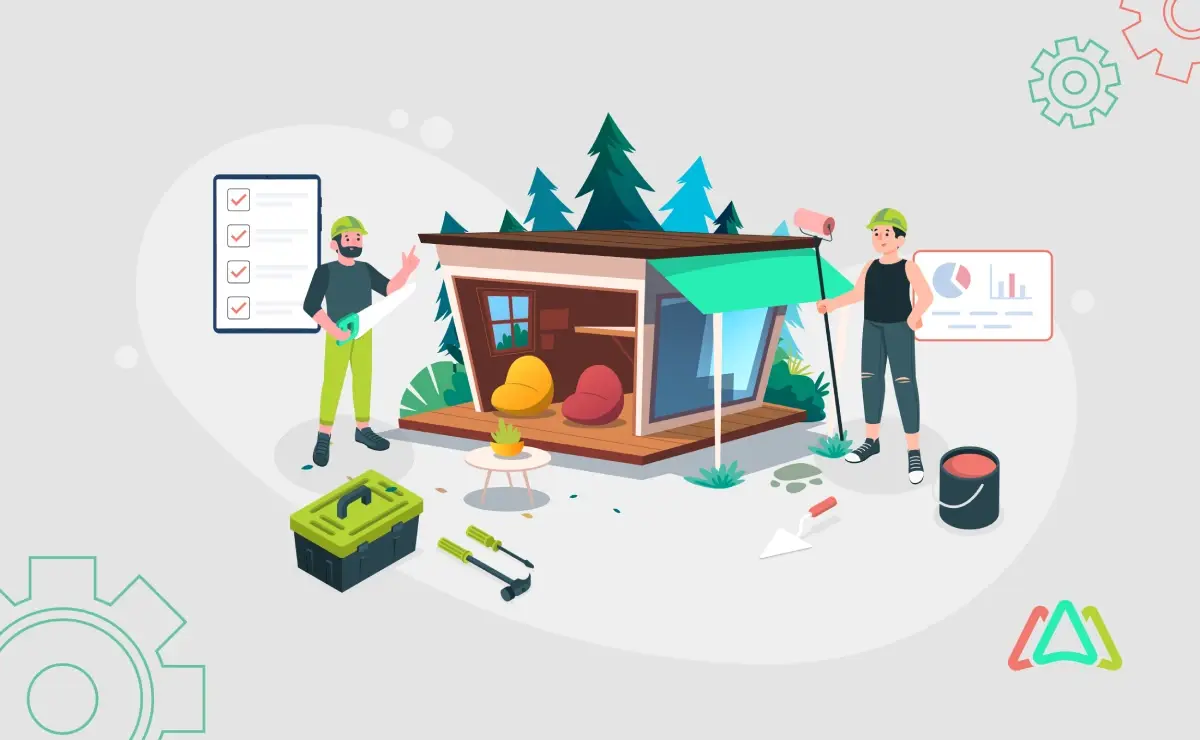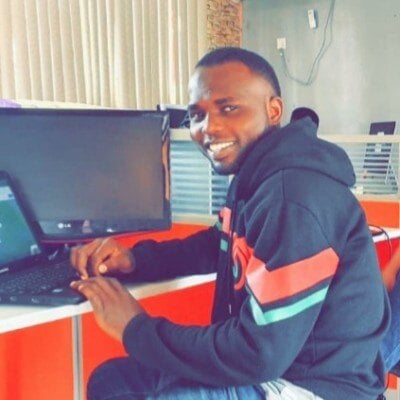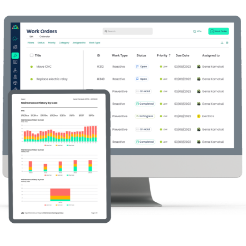
Improving Property Maintenance Efficiency for Airbnbs with CMMS
Imagine a guest arrives at your advertised cabin, only to find a leaky faucet, poor Wi-Fi and a broken heater. Not only do you risk receiving negative reviews, but you also face unexpected repair costs. Over 75% of property managers in the United States are involved in maintenance and repairs, highlighting the critical need for efficient maintenance management. Maintaining short-term rental properties like Airbnbs and cabins can be challenging, considering the high involvement of property managers in maintenance activities. This often leads to guest complaints and costly repairs. Computerized Maintenance Management Systems (CMMS) are emerging as an effective solution to help manage maintenance at vacation and rental properties. CMMS software streamlines maintenance tasks by automating work orders and scheduling preventive maintenance, and managing resources like vendors, technicians, and other costs. By adopting a CMMS, property owners ensure their rentals are well-maintained and guest-ready while enhancing overall efficiency. This article highlights how property managers can leverage CMMS to improve maintenance operations, boost guest satisfaction, and increase profitability in the competitive short-term rental market.
Understanding Property Maintenance Challenges in Short-Term Rentals
Managing maintenance for short-term rentals like Airbnbs and cabins presents unique challenges. High turnover rates result in increased wear and tear, requiring constant attention to keep properties in top condition. During peak seasons, frequent guest changes can strain resources and staff. Today's travelers demand spotless facilities with fully functional amenities. Even minor maintenance issues, like a dripping faucet or faulty air conditioner, can lead to dissatisfaction and negative reviews. For instance, a non-functional hot water system can leave guests unhappy and harm the property's reputation.
Coordination challenges, especially for managers overseeing multiple rentals, add complexity. Efficient systems and clear communication are key factors in scheduling repairs, managing staff, and ensuring timely task completion. Overlooking a key maintenance task, such as an HVAC service, can lead to significant problems and revenue loss. Addressing these challenges is vital for maintaining the reputation and profitability of short-term rentals. An efficient maintenance system helps meet high guest standards, resulting in better reviews and increased bookings.
What is a CMMS?
A Computerized Maintenance Management System (CMMS) is a powerful software application designed to streamline maintenance management for properties. Imagine having a tool that automates the tracking and scheduling of every maintenance task, ensuring your properties are always guest-ready and in top condition. Going further, a CMMS software can help with budgeting and forecasting costs and needed resources as it allows users to track all costs, materials and time required for maintenance activities. This data can easily be reported on so property managers can plan and be prepared for upcoming maintenance requirements.
Key Features of CMMS
Work Order Management:

Say goodbye to manual logs and endless spreadsheets. A CMMS automates the creation, assignment, and tracking of maintenance tasks like work order. For example, if a guest reports a broken shower head, the system automatically generates a work order, assigns it to the appropriate staff, and tracks its completion. Many CMMS platforms can allow requests to scan a QR code and make a maintenance request in real time with images and details from their mobile phone.
Preventive Maintenance Scheduling:

Preventive maintenance scheduling is important for avoiding costly repairs. A CMMS schedules routine maintenance tasks, like HVAC servicing or gutter cleaning, ensuring they are performed regularly. This proactive approach helps in identifying potential issues before they become major problems, saving you time and money.
Inventory Management:

Keep track of your maintenance supplies effortlessly with inventory management. A CMMS monitors and manages the inventory of items like light bulbs, cleaning supplies, and spare parts. You'll always know when it's time to reorder, preventing last-minute scrambles.
Reporting:
Get detailed insights into your maintenance activities and performance. A CMMS generates comprehensive reports that help you understand maintenance trends, costs, and efficiency. For instance, you can analyze which properties require the most maintenance and why, allowing you to make informed decisions.
Benefits and Advantages of CMMS for Property Maintenance in Airbnbs, Cabins, and Holiday Rentals
A Computerized Maintenance Management System (CMMS) offers numerous benefits and advantages for efficient property maintenance, making itself an indispensable tool for managing short-term rentals, including Airbnbs, cabins, and holiday rentals. The short-term rental market is fiercely competitive, with guests expecting nothing short of perfection. Consequently, property managers must ensure that their properties are maintained at the highest standards to attract and retain guests. Here, CMMS plays a pivotal role.
Improved Efficiency:
CMMS automates and streamlines maintenance tasks, reducing manual effort and errors. This leads to higher operational efficiency and allows property managers to focus on other critical aspects of their business.
Cost Savings:

CMMS helps reduce overall maintenance costs by decreasing emergency repairs and enabling better budget management. Predictive maintenance capabilities leverage data analytics to forecast potential issues before they become significant problems, minimizing downtime and avoiding costly emergency repairs.
Enhanced Guest Experience:
Ensuring properties are well-maintained leads to higher guest satisfaction. Real-time updates on the status of maintenance tasks enable quick responses to any arising issues, preventing minor problems from escalating and enhancing guest satisfaction.
Regulatory Compliance:
CMMS helps meet safety and health standards through scheduled maintenance, ensuring regulatory compliance. It generates detailed records of all maintenance activities, making it easier to demonstrate compliance during inspections and audits.
Centralized Maintenance Management:
CMMS simplifies the tracking and management of all maintenance activities from a single platform by centralizing maintenance operations. This centralized approach allows property managers to oversee multiple properties seamlessly, ensuring no maintenance task falls through the cracks.
Resource Optimization:
CMMS ensures efficient use of labor, materials, and time by scheduling and prioritizing maintenance tasks. This optimization leads to better resource allocation, reduced waste, and timely and effective completion of maintenance activities.
Compliance and Documentation:
Maintaining compliance with safety and regulatory standards is vital for property management. CMMS helps achieve this by ensuring proper documentation and timely maintenance. It generates detailed records of all maintenance activities, making it easier to demonstrate compliance during inspections and audits.
CMMS enhances property maintenance by centralizing management, enabling predictive maintenance, optimizing resources, providing real-time updates, and ensuring compliance with regulatory standards. These advantages collectively lead to more efficient property maintenance, improved guest satisfaction, and increased profitability for short-term rental properties. Implementing CMMS can transform property maintenance, making it more efficient, cost-effective, and reliable.
Implementing CMMS for Your Short-Term Rental Business
Computerized Maintenance Management System (CMMS) implementation in your short-term rental business involves several key steps to ensure it meets your needs and enhances efficiency.
Assessing Your Needs
Begin by evaluating your property maintenance requirements. Consider the size of your rental portfolio, frequency of maintenance tasks, and specific challenges you face in managing property upkeep.
Choosing the Right CMMS
Select a CMMS solution that aligns with your business needs. Key factors to consider while selecting the right CMMS software include ease of use, functionality, mobility, ease of implementation, integration capabilities, price, and CMMS vendor support.
Setting Up the System
Set up your CMMS by inputting relevant data, such as property details and maintenance histories. Define maintenance schedules and protocols and ensure staff are thoroughly trained on using the system.
Integrating with Other Tools
CMMS integration with other applications you use, such as booking platforms and accounting software, to streamline operations and enable seamless communication between different aspects of property management. By following these steps, you can effectively implement CMMS, improving maintenance efficiency and enhancing guest satisfaction.
Best Practices for Maximizing CMMS Effectiveness
Adopting best practices is vital to fully leveraging the benefits of a Computerized Maintenance Management System (CMMS).
Regular Training
Continuous CMMS training is essential for maximizing its effectiveness. Ensure that all staff members are thoroughly trained on how to use the system and stay updated with any new features or updates. Regular training sessions can help employees become more proficient, leading to better data input, accurate scheduling, and efficient use of the system. This ongoing education nurtures a culture of competency and adaptability, a requirement for maintaining high operational standards. Establish a strong relationship with your CMMS provider and lean on their customer success team to guide you to training resources, product updates and staying up to date on the direction of the product.
Routine Audits

Conducting regular audits is another vital practice. Routine audits help verify that the CMMS is being used correctly and that all data entered is accurate and up to date. These audits can identify discrepancies, inefficiencies, or areas that require additional attention, ensuring the system’s reliability. Regular reviews of maintenance logs, work orders, and inventory records can also highlight patterns or recurring issues, providing insights for further improvements.
Feedback Mechanisms
Implementing feedback loops is essential for continuous improvement. Encourage maintenance staff to provide feedback on the CMMS's functionality and usability. This feedback can reveal practical challenges and areas for enhancement, guiding system updates and training programs. Creating a responsive feedback environment ensures that the system evolves to meet the users' needs, enhancing its overall effectiveness.
By prioritizing regular training, routine audits, and robust feedback mechanisms, property managers can maximize the effectiveness of their CMMS, leading to more efficient maintenance operations, improved property conditions, and greater guest satisfaction.
Conclusion
In this article, we've explored the significant challenges of property maintenance in short-term rentals and how a Computerized Maintenance Management System (CMMS) can address these issues. We covered the key features and benefits of CMMS, including improved efficiency, cost savings, enhanced guest experience, and regulatory compliance. Additionally, we provided insights into implementing CMMS and highlighted best practices for maximizing its effectiveness.
Now is the time to consider adopting a CMMS for your rental properties. By doing so, you can streamline maintenance tasks, reduce costs, and improve guest satisfaction.
To get started, assess your property maintenance needs and select a CMMS that suits your requirements. Set up the system by inputting data and training your staff. Regularly audit the system and gather feedback to ensure continuous improvement. By following these steps, you can optimize your maintenance processes and enhance the overall quality of your short-term rental properties.
TABLE OF CONTENTS
Keep Reading
By 2026, CMMS platforms will no longer be the limiting factor in maintenance performance. ...
30 Dec 2025
Spare parts management within maintenance can make the difference between a problem-free ...
16 Dec 2025
Every maintenance team eventually faces the same question: When should we repair, and when ...
12 Dec 2025
Enterprise Asset Management (EAM) software has become a cornerstone for organizations aiming ...
12 Dec 2025
Unexpected equipment breakdowns can disrupt operations, increase repair costs, and reduce ...
11 Dec 2025
Businesses are always looking for ways to improve efficiencies, reduce costs, and improve ...
9 Dec 2025
The longest U.S. federal government shutdown to date lasted 43 days, beginning on October 1, ...
5 Dec 2025
Every maintenance professional faces it sooner or later — that critical time when an aging ...
18 Nov 2025
The term 'best' is often used loosely, without a clear understanding of its context or ...
14 Nov 2025
In the not too distant past, maintenance strategies have been defined by reaction—fixing ...
13 Nov 2025
Tax season is the time of year that often sends a ripple of anxiety through many of us. The ...
11 Nov 2025
Selecting a Computerized Maintenance Management System (CMMS) can, at first glance, be an ...
4 Nov 2025
In healthcare facilities, equipment uptime involves more than achieving operational ...
31 Oct 2025
Companies are subject to economic ups and downs, also known as economic volatility. Today, ...
30 Oct 2025
Maintenance challenges are a constant struggle, with unplanned downtime costing manufacturers ...
27 Oct 2025
Last winter, a maintenance technician at a U.S. paper mill ignored a predictive alert that ...
10 Oct 2025
Many organizations proudly say they “have a CMMS,” but ownership alone doesn’t equal ...
9 Oct 2025
Every maintenance team is under pressure to do more with less. Unplanned downtime is often ...
7 Oct 2025
The implementation of simple, yet powerfully effective, checklists has repeatedly ...
3 Oct 2025
In manufacturing, every second counts. When production stops, whether due to scheduled ...
2 Oct 2025





